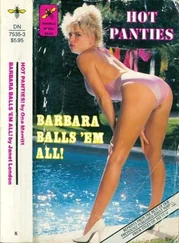In the summer heat of 2008, as the crisis was getting started and before a broader panic set in, there were concerns about the housing market and the health of banks in particular. It was not fully apparent that the entire financial system might be at risk. Some banks had failed, the investment house of Lehman Brothers had been battered but had not yet failed (it would finally go under on September 15), and government-backed Fannie Mae and Freddie Mac were in serious financial trouble. Bachus's Financial Services Committee consulted regularly with federal officials and was considering a series of legislative steps to deal with these problems.
Fannie Mae (the Federal National Mortgage Association) and Freddie Mac (the Federal Home Loan Mortgage Corporation) are congressionally chartered corporations whose original purpose was to pump cash into the nation's mortgage market. By 2007, the two had $83.2 billion in assets—but they were also carrying about $5.2 trillion in debt and guarantees. In short, they were leveraged at a ratio of about 65 to 1, and were hardly sustainable as the housing market tumbled. 6Both were deeply in trouble and effectively insolvent. If they went down, many feared that Fannie and Freddie might bring the entire financial system down with them, since it would mean widespread foreclosures on countless homes. To head off disaster, congressional leaders and administration officials conferred frequently. According to Henry Paulson's memoir, for example, a private meeting took place on September 4 in the Russell Senate Office Building, with Paulson, Senators Chris Dodd and Richard Shelby, and Congressman Bachus in attendance. During the meeting they discussed how to proceed with legislation to rescue Fannie and Freddie. There had also been congressional hearings and consultations in July and August. 7
As Bachus and his committee wrestled with these issues, the congressman was aggressively buying options. 8Back on July 14, he bought "puts"—that is, options to sell—representing the entire financial sector of the stock market, in the form of a sector SPDR fund. This is an index fund that tracks the'S&P 500 corporations as divided into nine categories: consumer discretionary, consumer staples, utilities, technology, and so on. Bachus was betting that the financial sector fund would fall—in other words, the combined stock prices of financial services firms in the'S&P 500 would go down. (This is what is called selling short.) He started small, buying $4,500 worth and cashing in the next day, making close to $1,500 in capital gains.
Ironically, on July 24, Bachus wrote to the Securities and Exchange Commission requesting that it extend an emergency order intended to curb naked short selling. Some analysts were blaming the high volatility of the crisis on speculators who made short-term bets on stock prices by shorting them. A "naked short" refers to short-selling a stock without first borrowing it, or ensuring the ability to borrow it. This is highly risky for the seller, and it greatly increases the potential amount of short selling, since anyone can do it, whether or not he can afford it, and whether or not the stock being shorted is even available. Bachus himself was not guilty of naked short selling; he was always careful to put in play small amounts of money that he could afford to lose. But naked short sellers are really just an extreme version of all short sellers, and he was actively engaged in betting on the markets to fall.
Bachus was neck-deep in crucial financial decision-making at the highest levels. A few weeks later, he sent a letter to the Financial Accounting Standards Board, an independent private-sector organization, expressing concerns that proposed accounting changes might put at risk $10.5 trillion worth of securitized assets. Bachus wanted to see an end to mark-to-market accounting, in which an asset or liability is priced based on the current market value, and instead allow financial institutions and others to price liabilities based on the value when they are acquired. 9His position was certainly defensible, and it shows he was properly active and concerned with the state of financial markets. But he was not exactly disinterested in those markets.
Bachus kept trading. On August 15 and August 22, he bought more than $11,000 worth of SPDR sector option contracts. A few days later, he pocketed more than $5,000 in capital gains because he "guessed" right.
On the evening of September 18, at 7 P.M., Bachus received another private briefing for congressional leaders by Hank Paulson and Federal Reserve Bank Chairman Ben Bernanke about the current state of the economy. They sat around a long table in the office of Nancy Pelosi, then the Speaker of the House. These briefings were secretive. Often, cell phones and Blackberrys had to be surrendered outside the room to avoid leaks. 10
What Bachus and his colleagues heard behind closed doors was stunning. As Paulson recounts, "Ben [Bernanke] emphasized how the financial crisis could spill into the real economy. As stocks dropped perhaps a further 20 percent, General Motors would go bankrupt, and unemployment would rise ... if we did nothing." The members of Congress around the table were, in Paulson's words, "ashen-faced."
Bernanke continued, "It is a matter of days before there is a meltdown in the global financial system." Bachus was among those who spoke. According to Paulson, he suggested recapitalizing the banks by buying shares. 11
The meeting broke up. The next day, September 19, Congressman Bachus bought contract options on Proshares Ultra-Short QQQ, an index fund that seeks results that are 200% of the inverse of the Nasdaq 100 index. In other words, he was shorting the market. It was an inexpensive way to bet that the market would fall. He bought options for $7,846 on a day when the Dow Jones Industrial Average opened at 8,604. A few days later, on September 23, after the market had indeed fallen, he sold the options for over $13,000 and nearly doubled his money.
He continued in this vein, making short-term bets lasting between a day and a week, benefiting on 100-point swings. Meanwhile, the Treasury Department had worked with congressional leaders (including Bachus) to cobble together the $700 billion TARP rescue plan. The plan was publicly announced on September 22. Bachus made another options buy on Proshares Ultra on the day of the announcement. The congressman nearly doubled his money again, bringing in an additional $2,081 in capital gains.
On September 23, the House voted against the bailout as proposed by the Treasury Department. Amendments and revisions were offered. Bachus would later be criticized by his Republican colleagues for waffling on the bill: at first he was for it, then against it, then for it again. As the bill was recast and modified, Bachus's Financial Services Committee continued with private consultations. It was not until October 3 that the revised $700 billion bailout plan passed in the House and was signed into law by President Bush. At the signing ceremony in the Rose Garden of the White House, President Bush praised Bachus's work.
The bill gave the Treasury Department the power to purchase the toxic debt on banks' balance sheets. Paulson and others remained extremely concerned about the financial situation. Bachus was well aware of where things stood, but was apparently confident that the federal bailout would do the trick. He continued trading options, this time buying shares in an index fund known as Powershares QQQ, which tracks one hundred of the largest nonfinancial companies on the Nasdaq exchange. He bought into the fund on more than ten occasions in October, and he purchased options on the'S&P 500 index six times. These were "calls"—that is, bets that the market would rise. Not all of Bachus's trades made money. These were still bets, and sometimes he bet wrong.
Читать дальше











